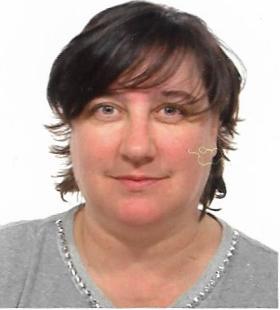Studying at the University of Verona
Here you can find information on the organisational aspects of the Programme, lecture timetables, learning activities and useful contact details for your time at the University, from enrolment to graduation.
Academic calendar
The academic calendar shows the deadlines and scheduled events that are relevant to students, teaching and technical-administrative staff of the University. Public holidays and University closures are also indicated. The academic year normally begins on 1 October each year and ends on 30 September of the following year.
Course calendar
The Academic Calendar sets out the degree programme lecture and exam timetables, as well as the relevant university closure dates..
| Period | From | To |
|---|---|---|
| INF BZ - 1° anno 1° sem | Oct 1, 2019 | Dec 20, 2019 |
| INF BZ - 2° anno 1° sem | Oct 1, 2019 | Dec 20, 2019 |
| INF BZ - 3° anno 1° sem | Oct 1, 2019 | Jan 31, 2020 |
| INF BZ - 1° anno 2° sem | Feb 3, 2020 | Apr 17, 2020 |
| INF BZ - 3° anno 2° sem | Apr 20, 2020 | Jun 8, 2020 |
| INF BZ - 2° anno 2° sem | Apr 20, 2020 | Jun 8, 2020 |
| Session | From | To |
|---|---|---|
| INF BZ - sessione invernale | Jan 7, 2020 | Feb 28, 2020 |
| INF BZ - sessione estiva | Jun 1, 2020 | Jul 31, 2020 |
| INF BZ - sessione autunnale | Sep 1, 2020 | Sep 30, 2020 |
| Session | From | To |
|---|---|---|
| 1^ SESSIONE | Oct 1, 2020 | Nov 30, 2020 |
| 2^ SESSIONE | Mar 1, 2021 | Apr 30, 2021 |
| Period | From | To |
|---|---|---|
| FESTIVITA' OGNISSANTI | Nov 1, 2019 | Nov 1, 2019 |
| FESTIVITA' IMMACOLATA CONCEZIONE | Dec 8, 2019 | Dec 8, 2019 |
| Vacanze di Natale | Dec 24, 2019 | Jan 6, 2020 |
| VACANZE DI PASQUA | Apr 10, 2020 | Apr 15, 2020 |
| FESTA DELLA LIBERAZIONE | Apr 25, 2020 | Apr 25, 2020 |
| FESTIVITA' DEL LAVORO | May 1, 2020 | May 1, 2020 |
| FESTA DELLA REPUBBLICA | Jun 2, 2020 | Jun 2, 2020 |
| Description | Period | From | To |
|---|---|---|---|
| INF BZ - tirocinio 3° anno 1^ esp | INF BZ - tirocinio 3° anno 1^ esp | Nov 17, 2019 | Dec 21, 2019 |
| INF BZ - tirocinio 2° anno 1^ esp | INF BZ - tirocinio 2° anno 1^ esp | Feb 3, 2020 | Mar 9, 2020 |
| INF BZ - tirocinio 3° anno 2^ esp | INF BZ - tirocinio 3° anno 2^ esp | Mar 2, 2020 | Apr 11, 2020 |
| INF BZ - tirocinio 2° anno 2^ esp | INF BZ - tirocinio 2° anno 2^ esp | Mar 16, 2020 | Apr 18, 2020 |
| INF BZ - tirocinio 1° anno 1^ esp | INF BZ - tirocinio 1° anno 1^ esp | Apr 20, 2020 | May 25, 2020 |
| INF BZ - tirocinio 1° anno 2^ esp | INF BZ - tirocinio 1° anno 2^ esp | Jun 1, 2020 | Jun 30, 2020 |
| INF BZ - tirocinio 3° anno 3^ esp | INF BZ - tirocinio 3° anno 3^ esp | Jul 6, 2020 | Aug 14, 2020 |
| INF BZ - tirocinio 2° anno 3^ esp | INF BZ - tirocinio 2° anno 3^ esp | Aug 11, 2020 | Sep 8, 2020 |
Exam calendar
Exam dates and rounds are managed by the relevant Medicine Teaching and Student Services Unit.
To view all the exam sessions available, please use the Exam dashboard on ESSE3.
If you forgot your login details or have problems logging in, please contact the relevant IT HelpDesk, or check the login details recovery web page.
Should you have any doubts or questions, please check the Enrollment FAQs
Academic staff
 liliana.favari@univr.it
liliana.favari@univr.it
 sylvia.lintner@sabes.it
sylvia.lintner@sabes.it
 m.mussner@virgilio.it
m.mussner@virgilio.it
 loredana.pancheri@univr.it
loredana.pancheri@univr.it
 sara.pilotto@univr.it
sara.pilotto@univr.it
 0471067355
0471067355
 luisa.valer@claudiana.bz.it
luisa.valer@claudiana.bz.it
Study Plan
The Study Plan includes all modules, teaching and learning activities that each student will need to undertake during their time at the University.
Please select your Study Plan based on your enrollment year.
1° Year
| Modules | Credits | TAF | SSD |
|---|
Professional Laboratories (1st year)
2° Year activated in the A.Y. 2020/2021
| Modules | Credits | TAF | SSD |
|---|
Professional Laboratories (2nd year)
3° Year activated in the A.Y. 2021/2022
| Modules | Credits | TAF | SSD |
|---|
Professional Laboratories (3rd year)
| Modules | Credits | TAF | SSD |
|---|
Professional Laboratories (1st year)
| Modules | Credits | TAF | SSD |
|---|
Professional Laboratories (2nd year)
| Modules | Credits | TAF | SSD |
|---|
Professional Laboratories (3rd year)
Legend | Type of training activity (TTA)
TAF (Type of Educational Activity) All courses and activities are classified into different types of educational activities, indicated by a letter.
Chronic clinical nursing care - INFERMIERISTICA CLINICA NELLA CRONICITA' (2020/2021)
Teaching code
4S000109
Teacher
Credits
2
Language
Italian
Scientific Disciplinary Sector (SSD)
MED/45 - NURSING
Period
INF BZ 2° ANNO 2° SEM dal Mar 11, 2021 al Apr 30, 2021.
Location
BOLZANO
To show the organization of the course that includes this module, follow this link: Course organization
Learning outcomes
- name at least 3 aspects of why chronic diseases are of epidemiological and social importance.
- name the different characteristics of chronic diseases.
- can describe in their own words why chronic diseases have a "complex character".
- give examples of the 3 main areas of work according to Corbin & Strauss: Illness, daily life and biographical work (coping work).
- describe the concept of the disease progression curve (trajectory) and name its aspects.
- describe the usefulness of disease trajectories for health care professions.
- name the risk factors that may lead to loss of autonomy during hospitalisation.
- name the aspects of a rehabilitative care approach.
- describe, with examples, what is involved in self-management in chronic illness.
- indicate educational priorities to promote self-management.
- can explain why continuous care is important for people with chronic illnesses.
- know the important steps to take during discharge and name the factors which should be taken into account in discharge planning.
- describe situations which characterise a complex discharge.
- motivate the importance of education for continuity of care.
- explain the elements of the Chronic Care Model using an illustration.
-know the phases of swallowing.
- know the direct and indirect signs of a swallowing disorder.
- know the causes of a swallowing disorder.
- know the consequences of a swallowing disorder.
- They know the instruments for nursing screening and identification of dysphagia in neurological patients.
- are familiar with nursing screening tools and the identification of dysphagia in older patients - presby(dys)phagia.
- know adaptive, compensatory and restorative treatment approaches.
- name the difference between informal and formal care.
- explain at least 4 challenges for caregivers (Cargiver Burden).
- name specific challenges for caregivers of people with dementia.
- know the dangers associated with the hospitalisation of people with dementia.
- describe the symptoms of dementia, their course and the effects on different aspects of life.
- describe how to take an anamnesis of people with dementia and know the important data that are collected.
- name at least 4 goals of care for people with dementia.
- describe which skills are promoted in memory training, know the area of application and examples of implementation.
- name the objectives of ROT, know when it is used and give reasons for it.
- describe how biographical data is collected in memory therapy for dementia and how this can influence the design of relationships and the care of people with dementia.
- give reasons for the validation method and name the basic principles.
- describe the assessment of pain in people with dementia in different stages and learn about examples of how it is collected.
- know three behavioural categories that should be assessed in patients with moderate to severe dementia to identify pain.
- Describe measures to promote feeding and fluid intake in people with dementia.
- describe the assessment and management of behavioural disorders using the DICE model.
- describe interventions for people with dementia using the PLST model.
- name the principles of communication with people with dementia and know which types of communication should be avoided.
- assess risk factors for delirium.
- know the approaches of managing delirium and can give examples.
- know and motivate data collected during the contact with patients with diabetes mellitus.
- name risk factors or causes leading to a deviation of the blood glucose level.
- explain the pathophysiological processes associated with acute complications of diabetes mellitus.
- know the early warning signs/symptoms and neuroglycopenic symptoms associated with hypoglycaemia.
- they know what a hypoglycaemic perception disorder is and the danger associated with it.
- know the causes and measures (adapted to the condition) of hypoglycaemia.
- distinguish between diabetic ketoacidosis and hyperosmolar coma, know the signs and symptoms, explain the pathophysiological correlations and know the measures to be taken.
know the basics of correct blood glucose measurement.
- they know the different possibilities of oral therapies, the forms of administration and the important side effects that can be observed.
- They know the onset and duration of action of the various insulins.
- know the difference between intensified insulin therapy ICT and conventional insulin therapy CT.
- name the external factors that influence the effect of insulin.
- know the basics of correct insulin administration and storage.
- know what lipodystrophy is and know measures to prevent it.
- describe the pathophysiology of diabetic foot syndrome, know the risk factors, name the data which are collected during diabetic foot syndrome control
- know the educational content of foot care for people with diabetes mellitus
- know the goal of promoting self-care competence in people with diabetes mellitus and name important moments of education
- nominate dietary recommendations for people with diabetes mellitus
- promote the importance of sport and physical exercise for people with diabetes mellitus
- are familiar with the WHO definition of falling (2007)
- know and identify personal and environmental risk factors for a fall.
- describe in their own words the negative spiral of the fear of falling.
- name and describe appropriate measures to reduce risk factors for falls.
- know the modifiable and non-modifiable risk factors for ischaemic stroke.
- know the measures to be taken pre-clinically in case of suspected stroke.
- describe the components of acute clinical care in case of cerebral stroke.
- describe monitoring in the acute phase and its particularities in patients with cerebral strokes, motivate the individual components of monitoring.
- name recommendations for the treatment and prevention of complications in the acute and post-acute phase according to SPREAD (2016).
- describe the cause of spasticity after stroke and know the negative factors that influence its occurrence and can adapt their actions accordingly.
- describe the principles of the Bobath concept.
- motivate the design of the room for patients after stroke (according to Bobath).
- describe the measures that are observed in the care of patients with neglect.
- describe the measures observed in the care of patients with pusher syndrome.
- distinguish between motor, sensory, amnestic and global aphasia.
- know the principles of communication and management of people with speech disorders.
- know the cause of painful complications of the shoulder and hip and know measures to prevent them.
- name the symptoms of Parkinson's disease
- describe the effects of the symptoms of Parkinson's disease on self-care deficit and quality of life.
- know the main points of assessment in patients with Parkinson's disease.
- motivate the importance of maintaining a structured daily routine for people with Parkinson's disease.
- describe aspects of L-Dopa therapy and motivate these aspects in the preparation, administration and monitoring of therapy.
- name different factors to make the environment safe for people with M. Parkinson's and to facilitate the daily routine.
- are familiar with measures to promote movement and can describe them.
Program
Principles of caring for the person with chronic degenerative disease:
- promote the autonomy and independence of the patient and reduce the risk of disability
- to promote self-management of the disease -to ensure continuity of care: transitions, discharge, treatment reconciliation
- understand the disease trajectory
Effects of hospitalisation in chronicity and strategies to avoid the "hospitalisation syndrome".
Problems of the elderly person and/or with chronic degenerative diseases:
- Dysphagia: assessment and management
- Fall risk: risk factors and prevention measures
- Cognitive status and cognitive disorders: evaluation and management of memory deficit, language deficit, perception deficit
- Confusion state and delirium
- Caregiving and carer burden
- Communication with the elderly without or with cognitive impairment: ageism and elderspeak
Stroke
- Assessment and protocol in the first 24 hours
- Assessment and rehabilitation-educational approach in the post-acute phase with particular attention to early mobilisation, disability-related outcomes and family needs
Diabetes mellitus
- The educational triad: pharmacological-insulin treatment, diet and nutrition and physical activity
- Self-care behaviours for acute complications: hypoglycaemia and hyperglycaemia
- Acute situations requiring integrated intervention-Interventions for the prevention of chronic complications
Parkinson's and Alzheimer's
- Assessment, definition and expression of the main clinical manifestations;
- Problems and symptom clusters during the disease trajectory from pre-clinical to advanced disease phase
- Educational-assistance/rehabilitation and palliative approach in the different stages of the disease -Family needs and caregiving
| Author | Title | Publishing house | Year | ISBN | Notes |
|---|---|---|---|---|---|
| Georg Thieme Verlag KG. | I care Pflege (Edizione 2) | Georg Thieme Verlag KG. | 2020 | ||
| Saiani L, Brugnolli A | Trattato di Medicina e infermieristica. Un approccio di cure integrate | 2017 |
Examination Methods
Written exam: Multiple choice and open questions
Career prospects
Module/Programme news
News for students
There you will find information, resources and services useful during your time at the University (Student’s exam record, your study plan on ESSE3, Distance Learning courses, university email account, office forms, administrative procedures, etc.). You can log into MyUnivr with your GIA login details: only in this way will you be able to receive notification of all the notices from your teachers and your secretariat via email and soon also via the Univr app.
Gestione carriere
Orario lezioni
COMUNICAZIONE DEL PRESIDENTE DEL COLLEGIO DIDATTICO
Carissime Studentesse,
Carissimi Studenti,
di seguito un promemoria relativo alle modalità di erogazione della didattica per il corso di studio in Infermieristica A.A. 2022/2023.
In ottemperanza alle linee guida della Commissione didattica di Ateneo, che prevedono una didattica improntata ad un pieno recupero delle modalità regolari di erogazione in presenza, la Commissione didattica del CdL nella seduta del 29 settembre 2022, ha deliberato il pieno ritorno all’utilizzo della didattica frontale in presenza.
Solo nei casi di comprovata positività al COVID-19, e/o in situazioni di particolare fragilità (sempre correlate alla pandemia) sarà previsto il collegamento sincrono in modalità streaming; a tal proposito ogni Docente, sulla propria pagina web, darà chiare indicazioni sulla modalità di fruizione della didattica.
La modalità asincrona (registrazioni delle lezioni) non è prevista.
Nell’augurarvi un buon Anno Accademico, vi saluto cordialmente
Prof. Paolo F Fabene
Guida ai programmi degli insegnamenti
Guida ai programmi degli insegnamenti
Documents
| Title | Info File |
|---|---|
|
|
pdf, it, 1594 KB, 12/12/22 |
|
|
pdf, it, 1310 KB, 02/09/21 |
Linee guida per riconoscimento cfu
Lo studente che intende chiedere il riconoscimento di moduli o insegnamenti pregressi dovrà presentare domanda, entro il 30 novembre dell’anno accademico in corso, seguendo le indicazioni indicate al link seguente: https://www.univr.it/it/i-nostri-servizi/segreterie-studenti/gestione-carriere-studenti-medicina-e-chirurgia/riconoscimento-crediti-acquisiti-da-una-carriera-pregressa-medicina
Documents
| Title | Info File |
|---|---|
|
|
pdf, it, 295 KB, 09/11/21 |
Student login and resources
Attività didattiche regime part-time
Modalità di richiesta
La domanda di iscrizione part-time può essere presentata all'inizio di ogni anno accademico e comunque entro il 30 novembre di ogni anno. Entro lo stesso termine, se necessario, lo studente potrà richiedere di tornare al regime full-time. Al link seguente la pagina del servizio https://www.univr.it/it/i-nostri-servizi/segreterie-studenti/flessibilita-nella-frequenza-dei-corsi/possibilita-di-iscrizione-part-time-e-ripristino-full-time
Una volta inviata la domanda, lo studente concorda in via preventiva con il Coordinatore della didattica professionale (CDP), il piano di studi che intende perseguire nel periodo di part-time compilando il modulo in allegato
Documents
| Title | Info File |
|---|---|
|
|
octet-stream, it, 1309 KB, 21/10/22 |
Graduation
Documents
| Title | Info File |
|---|---|
|
|
pdf, it, 242 KB, 19/01/24 |
|
|
pdf, it, 80 KB, 06/04/24 |
|
|
pdf, it, 43 KB, 06/04/24 |
|
|
pdf, it, 44 KB, 09/04/24 |
|
|
pdf, it, 148 KB, 06/04/24 |
|
|
pdf, it, 108 KB, 06/04/24 |
|
|
pdf, it, 115 KB, 06/04/24 |
|
|
pdf, it, 1487 KB, 18/02/22 |
|
|
pdf, it, 437 KB, 22/03/24 |
|
|
pdf, it, 957 KB, 22/03/24 |
|
|
pdf, it, 424 KB, 19/01/24 |











